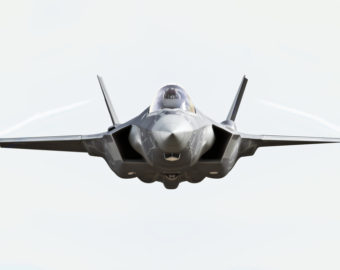The Pentagon Issues a Unilateral Contract for $6.1 Billion for F-35s to Lockheed Martin Amidst Criticism from Senator McCain and the Senate Armed Services Committee
November 7, 2015, Blog Post by Christine V. Williams
On Wednesday evening, November 2, 2016, the Pentagon issued a unilateral contract to Lockheed Martin (Lockheed) for the 9th lot of the joint strike fighter aircraft, the F-35s for $6.1 billion. Apparently, neither Lockheed nor the Senate Armed Services Committee, is happy with the arrangement, as evidenced by recent correspondence from the Senate Armed Services Committee to the Pentagon. As early as June, Senator John McCain was citing to problems with the program, focusing on the cost-overruns, which he categorized as “egregious” flamed by “cronyism.” Senator McCain’s criticism began when he was the then ranking member of the Senate Armed Services Committee in 2010 when he called the most expensive weapons program, pegged at $391.3 billion, as in “turmoil.”
Regarding the contract issued Wednesday, Senator McCain called the it a “symptom of our flawed defense acquisition system in general and the structure of the F-35 in general.” One of the more troubling aspects, according to McCain, is the Department of Defense (DOD) moving as if this was “business as usual” despite the lack of development of necessary technology and contract clauses. This occurring on the DODs largest procurement ever, makes a case for acquisition reforms to take place in the National Defense Authorization Act, commonly referred to as the NDAA, according to McCain.
The contract came after a year of negotiations between DOD and Lockheed, which were originally intended to broker a deal for about 150 aircraft for roughly $14 Billion, and to be finalized earlier this year. The negotiations were not completed and were, by some accounts, stalling. Lockheed voiced its disappointment that the 18 month negotiations (the Government states 14 months), which it stated it undertook in good faith, resulted in a unilateral contract. That contract, according to Lockheed, obligates them to perform under standard terms and conditions as well as previously agreed upon items.
The critical component not agreed upon, according to the Government, was price because the number of planes, the scope of work, the make-up of the planes, and the terms were agreed to already. In short, the Government set the price for the single largest unilateral contract in the history of DOD. Lockheed stated it was weighing its options, which, according to industry sources, could include an appeal to the Armed Services Board of Contract Appeals. Considering that Lockheed’s CFO disclosed it had spent nearly a billion dollars in expenses to pay its suppliers, that option may become more appealing to Lockheed.

